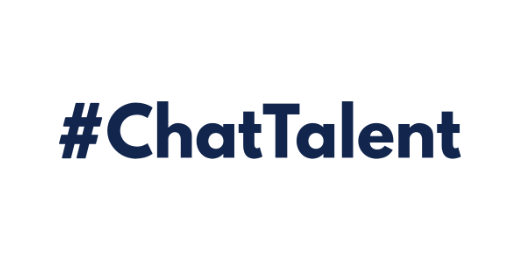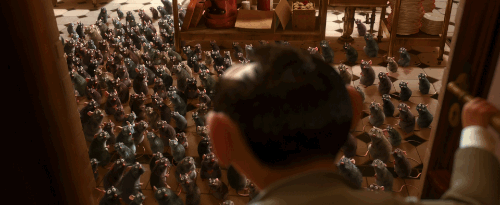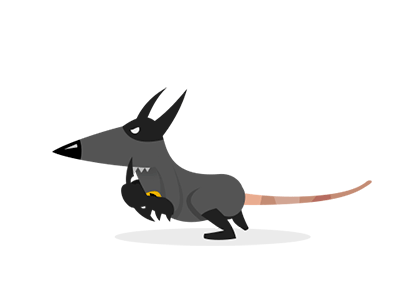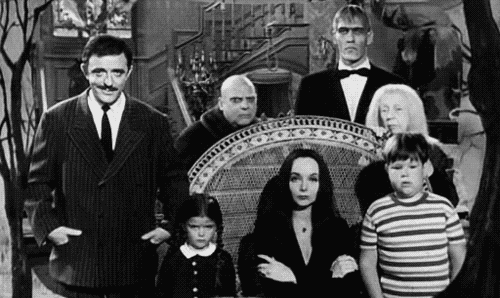Can you solve the complex maze to get to the food?
Assesses – spatial learning and memory
Results
Dolphin: Failed! (Couldn’t even get out of the water)
Rat: Passed! (got to the food in record time)
We created the rat race, now we need to rethink it entirely
The reality for most of us hiring managers or recruiters after specialist or niche talent, is that we can boil our best candidates down to a small pot….

Or most probably, if we’re lucky, into a tiny cup…
What then tends to happen is either assessment gets very little consideration dependent on the size and scope of the organisation, due to either timescales or available budget or a myriad of other reasons!
So we are forced to go for gut feel, or try and squeeze them into our values or pin them to our culture fit.
Which in all honesty could be a terrible culture, a culture lacking in diversity or just one that needs challenging and changing, but certainly not inflating!
Or maybe we do consider our assessment. Maybe we put great thought and consideration into how we assess our candidates and are really committed to getting this right.
So committed that we create a bias filled assessment process. Whether this is conscious or unconscious, the effects are the same!
Basically, an assessment process that blatantly throws out perceived bad apples!
You know those bad apples, the ones who can’t walk properly, talk properly and look you straight in the eye.
Or
That can’t meet the endless requirements and skills we request to be able to perform this super human role we are looking to fill!
Don’t worry, the robots will sort it out ;o)
No they won’t!
At least not in some Utopian seamless, one day we will wake up and all will be well with the world!

The reality is, if we programme them in our own light, we might just get the amazon effect.
Who needs women anyways!
Right!?!
A robot could impose our biases in a much more effective and efficient way than we could have ever imagined!

We’d be on track to creating a Donald Trump Utopia…
THE WALL of BIAS
Recruitment is tough, I get it and it adds to our workload often at a point where the last thing hiring managers need is more work.
So it’s much easier to get candidates to firmly place themselves in our box and if they don’t fit in that box for any reason, then we discard them.
We cannot take into consideration the variations in human cognitive, psychological and physical approaches, to take the time to really dig deep into the individual’s psyche.
We brush over the fact that an individual’s mental and physical abilities can be effected by the weather, the environment, the day of the week, personal life and it goes on…
Surely you’ve had the feeling, you go for a run or to the gym and one day you physically struggle to get through your routine.
Or a task that normally wouldn’t be an issue like writing an email or a letter, but you just can’t seem to get the words out.
Some jobs, some tasks, some days… just seem easier or harder than others.
You will fit in my box dammit!

So we come up with a plan for how to test for our magic skills.
This plan is based on a 100 years of assessment experience. It is the ultimate definitive plan to assess and we love it so much our whole belief system sits behind it.
But what happens when we assess the skills of a dolphin through assessments that are designed for rats!
We succeed in proving the ability of the top performing rats.
So that’s good right?
If we need a puzzle solved we’ve got the best rat for the job!
But what are we doing to the Dolphins through this assessment? We’re psychologically breaking them. Telling them they are not good enough to complete a task that they are more than capable of completing given the right conditions and assessment.
So can we truly say we account for these things when we invite candidates into our world and assess them?
When we walk into an interview do we consider what type of day this person is having, what outside pressures could they be under, are we helping them have a great candidate experience?
Have we stuck them in a fish bowl, left there pallet dry without a sip of water, or kept them in a room with no access to a toilet for hours. And then wonder why they are foaming at the mouth, wriggling in their chair or starring wide eyed like a wildling out of the fish bowl and into the distance.
What about the Dolphins?
I’m regularly talking to companies who specialise in assessment and assessment tech, even they don’t seem to have the definitive answer to this question, and some of those companies have been developed and are being run by Neurodivergent people! Go figure.
So how are the rest of us expected to succeed in developing a well-defined, highly structured assessment process that plugs into our recruitment process and helps eliminate bias and encourage more neurodiverse applicants?
Even worse than that we may not even be aware of the needs of the person sat next to us, those that we manage or engage with, let alone those that we are inviting to interview.
The UK’s Forgotten Talent research, conducted by The Recruitment Events Co in October in association with the Resourcing Leaders 100 (RL100) group found:
“A significant 76% reported that managers are neither aware of neurodiversity nor trained in how to best optimise and support a neurodiverse team”
So our biggest challenge first of all is one of highlighting the subject, so that managers and employees start to understand that there are these neurological differences and that it’s okay to start to think about it and share ideas and experiences.
Clearly there is already a duty for organisations to make reasonable adjustments during the interview process, but what happens when the individual hasn’t been diagnosed as neurodivergent or lacks the confidence in the system to communicate that they need support.
If we continue to create assessment processes that are created for neurotypicals it feels to me like a process that’s asking dolphins to walk out of the water to complete a task on dry land to prove their intelligence.
If you’re Autistic and you’re sensitive to sound, clearly interviewing somebody in a noisy environment, is going to have a negative impact on their ability to perform at their optimum.
You just have to look at the data to see, the neurodivergent communities are suffering.
We rightly feel that it’s important that somebody in a wheelchair has the same ability to access an interview and to conduct their job as anybody else.
Although I’m sure those with a disability and using a wheelchair would probably tell us we still have a long way to go, before accessibility for all is where it should be!
I would hope that somebody who is neurodivergent possibly autistic or with ADHD, would be given the same consideration as everybody else.
With a suspected 20% of the UK population who are neurodivergent and around 10% of those who are Dyslexic (data: British Dyslexia Association), clearly we have a responsibility and commitment to make sure our assessment process is accessible and suitable for these potentially highly talented and skilled workers.
I’ve written previously and more broadly on the potential of these individuals here:
Leading from Da Back of Da Class
What next?
Since I’ve been learning more about this subject and engaging more widely in conversation, something incredible is happening.
People are opening up and talking about their experiences, the experiences of their families and friends.
I’ve had a variety of people at work from directors to managers to advisors telling me their story, how it impacts their child or how they didn’t find out until they were 20, 28 or 36!
You’ll find most people who find out later in life feel a huge relief that they can start to make sense of some of their feelings and emotions.
20%!
That’s 2 out of every 10 people, and if you are nuerodivergent the likelihood is you’ll have other family members who are also.
The sad reality is, that most people won’t realise it either. They would have spent their whole life getting on with things, facing barriers and either overcoming them, having to walk around them or eventually being beaten by them.
I look back at my family tree. My Grandad on my Mum’s side died in his thirties, he lived via creative means, and they had a tough life. I wonder!
My Grandad on my Dads side, a Welsh champion boxer. Very verbose and creative character, who couldn’t have had many alternative opportunities.
My blood related aunties, uncles and cousins, spent a life in the army, in care, in special schools or service related industries. Sometimes it’s social class that plays its part, but if you dig deeper you can see other underlying traits and characteristics, that make you wonder.
You don’t have to look far to see the problem and how it’s resolving itself. Good people, creative people!
Dolphins making ends meet, in any way they can, in a world with limited waterways.
You can alter the face of the world!
So, start the conversation at home, in the public, with friends, at work. Let people know it’s okay to explore and open up the dialogue on this subject.
Take some time to learn about neurodivergents, even if it’s just taking some time to watch Netflix’s ‘Atypical’ .
It’s not the definitive guide to what it is to be autistic, but an easy and entertaining introduction. I’m enjoying watching it and you can see what the Guardian has to say about it here
And if you want some real inspiration you must watch Agony Autie (Sara) talking to the RL100 at this years final recruitment events company seminar in Crewe.
It was a real privilege to be at this seminar and I found her talk to be amazing. You can read what one of the other attendees and a member of the RL100 Andrew Grier thought of it here
If you don’t get it yet, hopefully you will after watching Sara give an empowered, engaging and moving talk.
Let’s make a real world New Year’s resolution and one that we should keep
Rather than continuing to see diversity initiatives as aspirational corporate objectives, let’s take this opportunity to create real change, through the power of one.
I believe we can make a difference as individuals by learning more about nuerodiversity and finding simple solutions that can improve the way in which we recruit, assess and interview candidates.
Sometimes it’s simply trying to put yourself in somebody else’s shoes, and making slight adjustments to accommodate.
So ask yourself this!
What can I do to make a ‘small’ difference this new year?
Because I believe, as others have before me, that many small things ‘can alter the face of the world’
Click here to like and comment on my Linkedin post and commit to change in 2019: I commit










